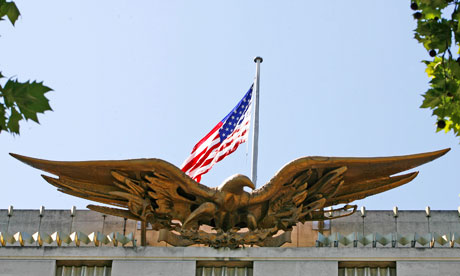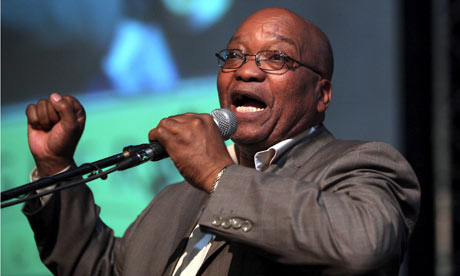Black Women and their obsesion with long hair!Black Women and their obsesion with long hair!
NewsChannel 5 reporter Rochelle Ritchie's drastic change
Reporter Goes Natural During Sweeps, Ratings Go Up
An African American female television reporter decided to let her straightened hair "go natural" during sweeps week and let viewers see the transformation process. Rochelle Ritchie of WPTV-TV in West Palm Beach, Fla., called "The Big Chop" a success, and ratings confirmed that. The station put up a web page with her two stories and related ones.
News director Jeff Brogan told Journal-isms that the ratings for the 11 o'clock news on Nov. 17, which featured Ritchie's second piece of the day, increased from the lead-in show and stayed at the high point during the broadcast. That is "not an easy thing," he said. The "share" of the audience numbered 11 at 10:45 p.m., rose to 14 from 11 p.m. to 11:15 p.m. and stayed there from 11:15 p.m. to 11:30 p.m., he said. The seven-minute piece aired at 11:15.
When Ritchie explained the story to him, said Brogan, 33, who is white, "I had no clue this was an issue," he said of the chemical straightening of hair or the wearing of wigs and weaves. "I never heard about it, and I had African American friends. I instantly bought into this" story. "I had not seen this story done. It brings up a safety concern," he said. Brogan said his only worry was insensitive audience reaction, but all the feedback was positive, he said.
Ritchie shared her own back story via e-mail with Keonte Coleman, assistant professor in the Journalism & Media Studies Department at Bennett College, who posted her comments on his website:
“Making the decision to go natural was not an easy one, especially being a black female reporter. After graduating Western Kentucky University in 2004, I accepted an editor position at a local tv station in my home of Lexington, KY. I had sent out tons of resume tapes hoping to one day be a reporter. But I didn’t get one interview with my relaxed shoulder length hair. One day an anchor, black female, told me I needed to get extensions if I wanted to land a job. I got extensions and made a new tape with my new look and I started getting calls immediately. From there the belief that I needed extensions in order to be hired set in. I spent more money on my hair than anything. In six years I spent $9600, my student loans are $9500, so that should give you an idea of where my priorities were.
"The story about going natural developed while I was having a conversation on the phone with a friend at work. My producer heard me saying, 'I am going natural, I am tired of wigs, weaves and relaxers.' She (producer) asked me what I meant by that and I showed her YouTube videos of black women who were on the journey of going natural. She was stunned and said, 'Rochelle that would make a great story for sweeps.' I pitched the idea and with her support as well as our female anchor they allowed me to do it. My news director’s response was great. His only concern was just keeping up with the process of my story and hair. My general manager is a great guy and totally supported me as well.
"The fear of getting a new job with my new look does not scare me because I believe my work and passion for this business will shine through.
"I have had such an AMAZING response from the community. People of all genders and races have completely supported me with positive feedback. Of course if there were any negative emails my news director does not send those to me. But personally I haven’t gotten one email or Facebook comment that was negative. A matter of fact many of my white and Latino colleagues say I look more professional. I believe this as well. I feel I look more polished and sharp. I also feel like I think better without all that fake hair on my head! lol….
"For my 'black female reporter hopefuls' I say let your work show your ability to be a good, excuse me a great reporter. My story is a way for me to pave the way for black women’s hair to be acceptable not just in the professional world but on TV! I would say if you are natural. Keep it neat. And if you are worried about getting a job the fabulous thing is we can straighten our hair for the interview and go back to our beautiful curls when we leave.
"Do I have any regrets? Yes I do. I regret denying my natural beauty. I regret falling into the belief that I needed to look a certain way to get into this business instead of believing in my ability as a reporter. I regret allowing someone to cover me up. But no more! This is me, Rochelle Ritchie a natural, professional and happy television reporter. And I feel more confident now than ever before and look forward to climbing the ladder of success with all my kinky curls.”
"Good Hair" on the TV News Set (Oct. 7, 2009)
Courtland Milloy Creates Buzz Tracing Issues to Race and Class
Washington Post Metro columnist Courtland Milloy Jr. sparked attention far outside the Washington area when he dissected the racial dimensions of D.C. Mayor Adrian Fenty's September primary defeat for reelection and this month took on the portrayal of black men in Tyler Perry's movie "For Colored Girls." Now Milloy is the cover story in the Washington City Paper.
"If he’s not quite a mouthpiece for a black agenda in the District, he’s the closest thing to it at the Post — or anywhere else in the local mainstream media, for that matter, Rend Smith wrote. "Milloy’s column cuts against the usual conventional wisdom in journalism these days, giving readers a mirror of an urban, poor D.C. instead of the wealthy suburbs advertisers would probably prefer. And while the newspaper lavishes attention on its new iPad incarnation, and courts Facebook and Twitter like a desperate teenaged boy chasing after a crush, Milloy almost gleefully stays away from the trend.
"Like the late Herb Caen in San Francisco, he’s an old-school journalist doing an old-school job: the Metro columnist writing about, and for, the city’s downtrodden. For decades, that was a generally quiet, low-impact job. But following a mayoral campaign that pitted rich against poor in dramatic new ways this fall, Milloy’s knack for reducing post-modern problems to their race-and-class roots has suddenly made him a controversial, buzz-generating columnist — the man that the supposedly liberal class of newcomers to D.C.’s gentrifying neighborhoods love to hate.
"In the steadfastly non-gentrified neighborhoods that Milloy covers, though, he’s rarely seen as incendiary."
The piece also asserts that in the 1970s, your Journal-isms columnist "was known for opening his Dupont Circle house up for late-night get-togethers that catered to the black media elite." (!)

























